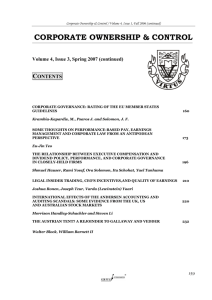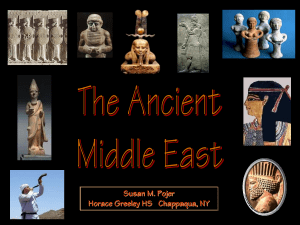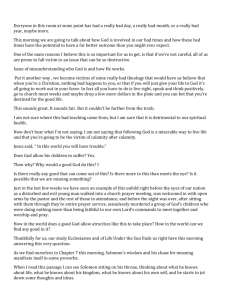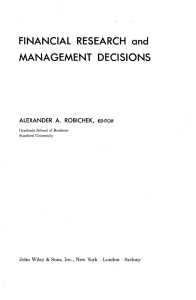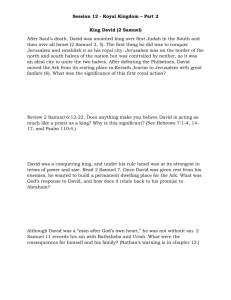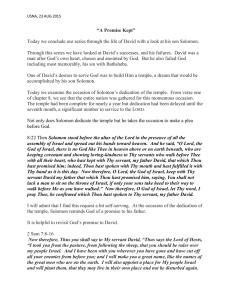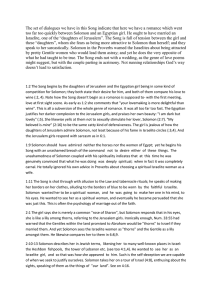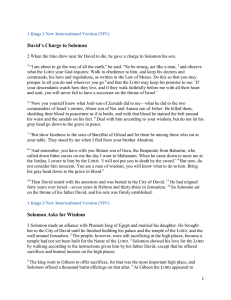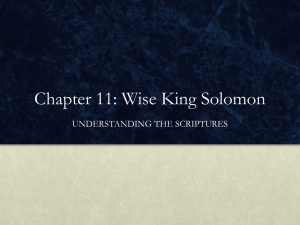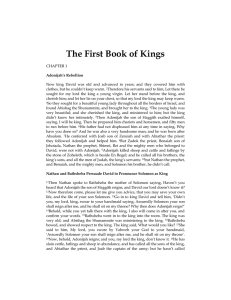Communitas Group Lesson_11-1-15_WORD_DOC
advertisement
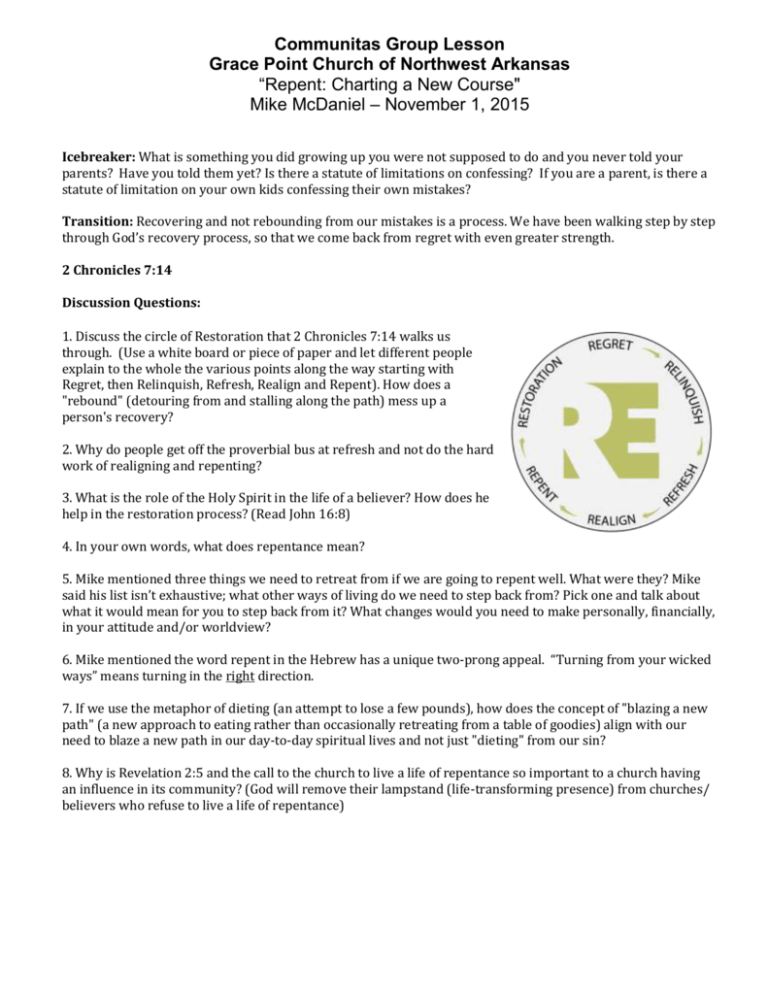
Communitas Group Lesson Grace Point Church of Northwest Arkansas “Repent: Charting a New Course" Mike McDaniel – November 1, 2015 Icebreaker: What is something you did growing up you were not supposed to do and you never told your parents? Have you told them yet? Is there a statute of limitations on confessing? If you are a parent, is there a statute of limitation on your own kids confessing their own mistakes? Transition: Recovering and not rebounding from our mistakes is a process. We have been walking step by step through God’s recovery process, so that we come back from regret with even greater strength. 2 Chronicles 7:14 Discussion Questions: 1. Discuss the circle of Restoration that 2 Chronicles 7:14 walks us through. (Use a white board or piece of paper and let different people explain to the whole the various points along the way starting with Regret, then Relinquish, Refresh, Realign and Repent). How does a "rebound" (detouring from and stalling along the path) mess up a person's recovery? 2. Why do people get off the proverbial bus at refresh and not do the hard work of realigning and repenting? 3. What is the role of the Holy Spirit in the life of a believer? How does he help in the restoration process? (Read John 16:8) 4. In your own words, what does repentance mean? 5. Mike mentioned three things we need to retreat from if we are going to repent well. What were they? Mike said his list isn’t exhaustive; what other ways of living do we need to step back from? Pick one and talk about what it would mean for you to step back from it? What changes would you need to make personally, financially, in your attitude and/or worldview? 6. Mike mentioned the word repent in the Hebrew has a unique two-prong appeal. “Turning from your wicked ways” means turning in the right direction. 7. If we use the metaphor of dieting (an attempt to lose a few pounds), how does the concept of "blazing a new path" (a new approach to eating rather than occasionally retreating from a table of goodies) align with our need to blaze a new path in our day-to-day spiritual lives and not just "dieting" from our sin? 8. Why is Revelation 2:5 and the call to the church to live a life of repentance so important to a church having an influence in its community? (God will remove their lampstand (life-transforming presence) from churches/ believers who refuse to live a life of repentance) Scriptural Background After Solomon had completed his building projects, Yahweh appeared to him a second time as he had appeared in the dream at Gibeon. This communication is clearly God’s response to the dedicatory prayer of Solomon. At least thirteen years had elapsed since that great prayer. Solomon was now at the height of his prosperity. With his building projects completed the king’s heart was puffed up with pride. His love for the Lord was waning. He had begun that spiritual decline which eventually led to idolatry. This divine word served to remind Solomon of that wonderful prayer and youthful devotion which he was in danger of losing (9:1–2). The Lord made the following points in this revelation: First, the Lord pledged himself to answer the prayers of his penitent people. “I will hear from heaven, will forgive their sin, and will heal their land.” Second, Yahweh assured Solomon that he had chosen and consecrated the temple “that my name may be there forever.” Third, he reminded Solomon of the conditional promise made to David. If his descendants were obedient to the Lord, then David’s sons would continue to occupy the throne in Jerusalem (2 Chr 7:12–18). The warnings against unfaithfulness are stern and uncompromising. If Solomon or any of his children turned from following Yahweh, God would deprive the nation of the land he had given them. Furthermore, the Lord would utterly reject the temple which he had so recently acknowledged. The condition of the nation would become so deplorable that people would allude to Israel when they wished to use an apt illustration of folly and unfaithfulness (9:6–7). In case of unfaithfulness, the house of God would be a conspicuous example of the fate which befalls an unfaithful people. Those who observed the ruins on the temple mount would hiss or whistle in astonishment. They would ask one another why Yahweh would have treated the land of the temple in this manner. The answer would come back from those close at hand that Israel had forsaken the God who had brought them out of Egypt (9:8–9). (Smith, James E. The Books of History. Old Testament Survey Series. Joplin, MO: College Press, 1995.)
